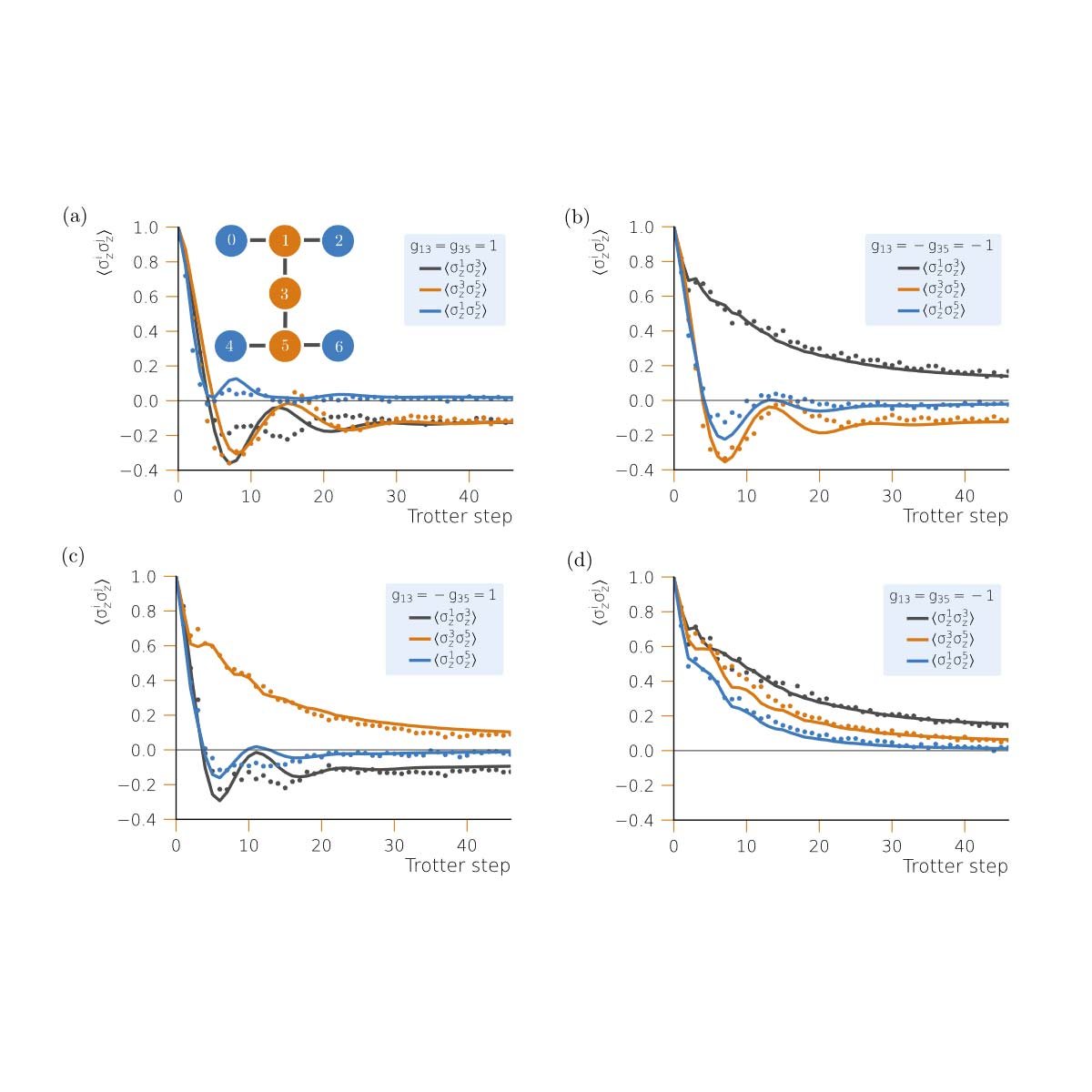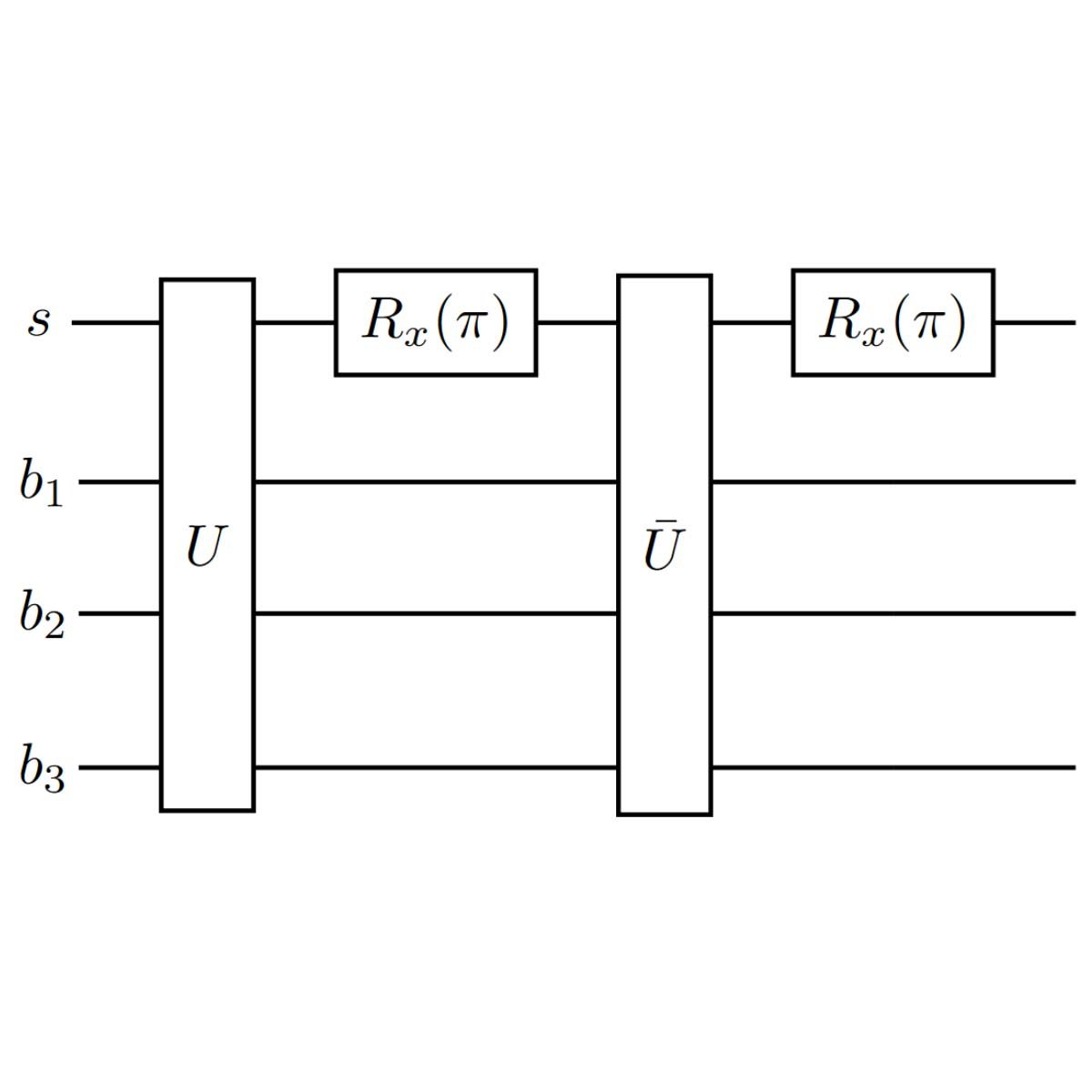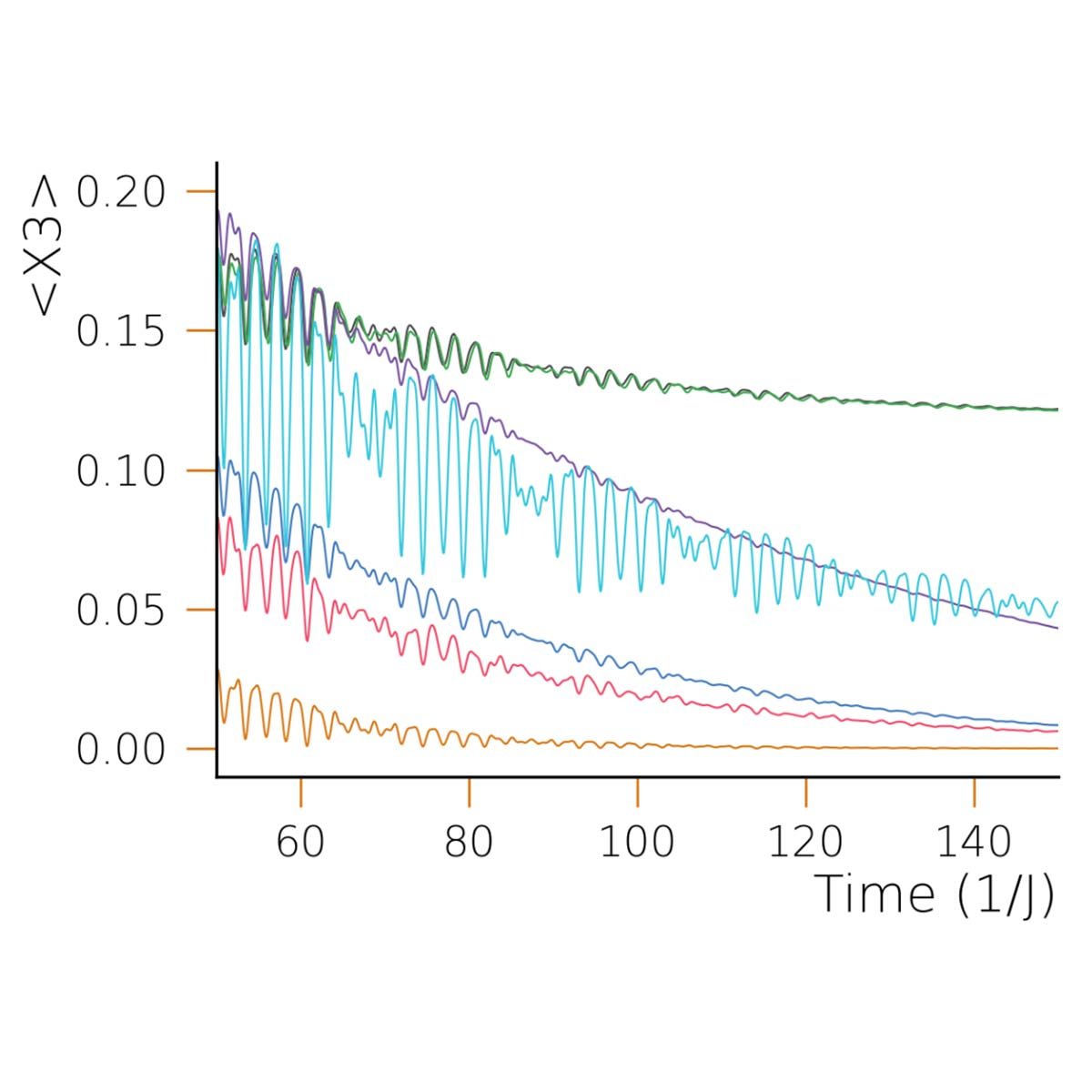Scientific Papers

Demonstration of system-bath physics on gate-based quantum computer
Authors: Pascal Stadler, Matteo Lodi, Andisheh Khedri, Rolando Reiner, Kirsten Bark, Nicolas Vogt, Michael Marthaler, and Juha Leppäkangas
We demonstrate algorithmic cooling on IBM-Q devices. We utilize inherent qubit noise to simulate the equilibration of an interacting spin system towards its ground state, when coupled to a dissipative auxiliary-spin bath. The steady-state correlations in the system are defined by the system Hamiltonian and are stable as long as the algorithm can be executed. In particular, we demonstrate the relaxation of system spins to ferromagnetic and antiferromagnetic ordering, controlled by the definition of the system Hamiltonian. We are able to perform simulated cooling for global systems of up to three system spins and four auxiliary spins.

A quantum algorithm for solving open system dynamics on quantum computers using noise
Authors: Juha Leppäkangas, Nicolas Vogt, Keith R. Fratus, Kirsten Bark, Jesse A. Vaitkus, Pascal Stadler, Jan-Michael Reiner, Sebastian Zanker, Michael Marthaler
In this paper, we present a quantum algorithm that uses noise as a resource. The goal of our quantum algorithm is the calculation of operator averages of an open quantum system evolving in time. Selected low-noise system qubits and noisy bath qubits represent the system and the bath of the open quantum system. All incoherent qubit noise can be mapped to bath spectral functions. The form of the spectral functions can be tuned digitally, allowing for the time evolution of a wide range of open-system models at finite temperatures. We study the feasibility of this approach with a focus on the solution of the spin-boson model and assume intrinsic qubit noise that is dominated by damping and dephasing. We find that classes of open quantum systems exist where our algorithm performs very well, even with gate errors as high as 1%. In general, the presented algorithm performs best if the system-bath interactions can be decomposed into native gates.

Describing Trotterized Time Evolutions on Noisy Quantum Computers via Static Effective Lindbladians
Authors: Keith R. Fratus, Kirsten Bark, Nicolas Vogt, Juha Leppäkangas, Sebastian Zanker, Michael Marthaler, Jan-Michael Reiner
We consider the extent to which a noisy quantum computer is able to simulate the time evolution of a quantum spin system in a faithful manner. Given a specific set of assumptions regarding the manner in which noise acting on such a device can be modeled at the circuit level, we show how the effects of noise can be reinterpreted as a modification to the dynamics of the original system being simulated. In particular, we find that this modification corresponds to the introduction of static Lindblad noise terms, which act in addition to the original unitary dynamics. The form of these noise terms depends not only on the underlying noise processes occurring on the device but also on the original unitary dynamics, as well as the manner in which these dynamics are simulated on the device, i.e., the choice of a quantum algorithm. We call this effectively simulated open quantum system the noisy algorithm model. Our results are confirmed through numerical analysis.
